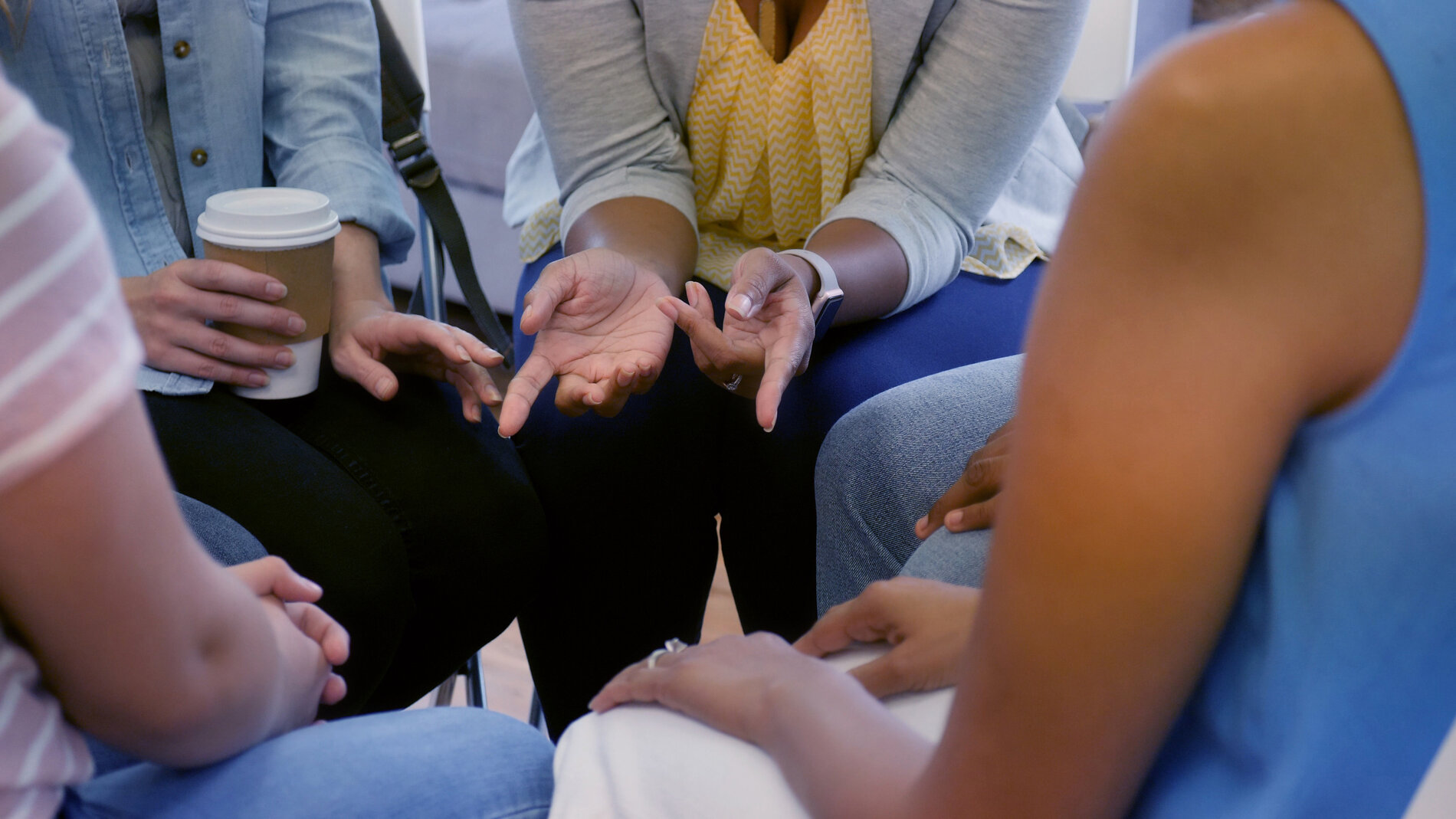 Photo from Getty Images
Photo from Getty Images
Originally Posted On: What to Expect From Intensive Outpatient (IOP) Addiction Treatment (marylandrecovery.com)
Navigating the world of addiction recovery can feel incredibly stressful. Whether you or a loved one are going through a recovery program, the process can create tension in your family. Many times, these emotions are alleviated by understanding the options available and developing a treatment plan that works for your unique situation.
One resource available to those recovering from addiction is Intensive Outpatient Addiction Treatment, or IOP. This option works for many people and provides services and flexibility that other programs cannot. However, even within the IOP community, there are several options to choose from. Choosing the right program is a big part of the battle, but it’s difficult to know where to begin. At Maryland Recovery, we aim to provide our clients with the knowledge to empower them to make decisions right for their unique experiences and situations.
What Is Intensive Outpatient Addiction Treatment?
Before making any decisions, it’s imperative to understand what this category of rehabilitation entails.
Similar to inpatient treatment centers, outpatient treatment involves programs such as:
- Individualized therapy
- Family therapy
- Life skills
- Vocational training
- Anger management
- Grief therapy
In these programs, individuals can work on the root of their addiction and resolve underlying issues that may contribute to their desire for drugs or alcohol. However, unlike inpatient services, IOP offers the above resources without a full-time commitment. Individuals live at home and even may continue to work or go to school, as they attend these programs on their own schedule. With this flexibility, there is less disruption to everyday life and a more integrated routine.
Benefits of IOP
 Photo from Getty Images
Photo from Getty Images
An Intensive Outpatient Program is a useful tool in the battle against addiction. While it certainly isn’t the right choice for every situation, it has incredible and lasting benefits for many people.
Some of these benefits include:
- Building and maintaining a normal life. Unlike inpatient programs, outpatient programs allow the enrollee to establish a healthy and stable lifestyle outside of the rehabilitation facility. Fostering healthy relationships, establishing a routine, and being self-confident are all wonderful side effects of having time at home while going through an addiction program.
- Increased sense of community. In inpatient centers, there is a constant awareness that each individual will finish their journey and graduate to the outside world. This transition can cut off communication between members of the community and leave individuals with a sense of loneliness when friends graduate and move on. In outpatient therapies, you have the opportunity and flexibility to nurture solid relationships with fellow members of the program, so that you can build a sober community that will support you after you are finished.
- Gaining real-life tools. In an outpatient program, methods such as Cognitive Behavioral Therapy can act as tools for navigating the real world. While inpatient programs often help individuals with withdrawal and initial crisis, outpatient programs provide these same individuals with methods to develop and maintain a healthy, sober lifestyle in the real world.
- Ongoing treatment. It can be incredibly frightening to enter the real world after an inpatient program. IOP offers a stepping stone to allow you to navigate daily life with continued support and resources by your side. Recovery is not linear, and it’s often necessary to have treatment options that extend beyond crisis or initial sobriety.
Depending on your unique situations, there may be more ways that IOP can benefit you and make your sobriety journey easier and more successful.
Who Benefits From IOP?
While IOP is a great resource for many people, it’s important to remember that it’s generally not used as the first step to sobriety. Many individuals struggling with addiction need the structure and confinement of an inpatient program to begin their journey. Many outpatient programs advertise their programs’ ease and flexibility, which is certainly a factor, but fail to admit that this flexibility is intended for long-term care and maintenance, not acute care. IOP is best used as a follow-up to an inpatient rehabilitation treatment to help maintain sobriety and build the tools to create a healthy, substance-free life.
 Photo from Getty Images
Photo from Getty Images
Choosing an Outpatient Program
Not all intensive outpatient addiction programs are the same. It’s important to know that one program is not necessarily a reflection of other programs, and it’s beneficial to look around at different programs before committing to one. However, it can be difficult to discern what to look for in potential programs. Consider the following topics and ask these questions when interviewing different programs:
How Does the Program Use Medication?
Some outpatient programs subscribe to a medication-based approach to substance abuse healing. This means that they prescribe Suboxone or methadone medications for long periods. These medications help to break the addiction and keep patients sober. While they are a completely valid resource and give many people the push they need to stop using certain substances, using them as a long-term solution is not a good idea.
Long-term, lasting healing comes from addressing the underlying issues that led to the addiction, as well as the addiction itself. Without internal, emotional work, attending recovery programs is a temporary fix. Be sure to ask potential programs what their philosophy is and how medications such as methadone come into play. Their response will tell you a lot about how effective the program will be.
What Is the Program’s Community Philosophy?
 Photo from Getty Images
Photo from Getty Images
Understanding that true individual healing comes in the form of community healing should be the cornerstone of any outpatient program. Group therapy and individualized therapy are both important and can address the issue in different and vital ways. Be sure that the program in question understands this and uses both an individual and community model in their treatments.
You’ve likely heard the saying that “addiction is a family disease.” If this is true, does the program have family therapy sessions and tools? Healing not only the individual but the family unit as well ensures that the individual experiencing addiction has a healthy foundation to lean back on during treatment and beyond. Attending a treatment that does not have a comprehensive approach will ultimately be unsuccessful, so be sure that the philosophy aligns with your values and a holistic healing approach.
Are They Capitalizing on the Outpatient Aspect?
Again, it’s important to remember that outpatient treatment programs are not meant to be a replacement for inpatient treatment. Instead, they are intended to be used as a supplement to inpatient programs and a stepping stone between living in a facility and normal life. Some facilities capitalize on their outpatient programs and claim that they are an alternative treatment program that will not disrupt your daily life like an inpatient system will.
While this is true, these programs are preying on the people who feel embarrassed or ashamed to admit that they suffer from an addiction and would rather not take time off from work to get better. It’s imperative to remember that outpatient treatments are not as effective as a first step and are meant for extended care. Think critically about any programs that claim otherwise or seem to give you a “quick fix” to recovery. They are likely only trying to get you in the door and care little about your lasting health and happiness.
Other Practical Questions to Ask
 Photo from Getty Images
Photo from Getty Images
Inquiring about things like the daily schedule, mealtimes, appointments, and staff may seem like overkill, but it certainly is not. It’s natural to want to know what to expect in addiction IOP, and this knowledge can make the process easier for you and your loved one. Understanding the practical application of philosophy and method will help you clearly see how effectively the program might work for your unique situation. Many facilities use buzzwords and marketing tools to attract website interest and make it seem like they provide wonderful results, but in practice, their methods fall flat. Asking about day-to-day activities can make it clearer when a facility is overtalking their program — in which case you should look elsewhere.
Maryland Recovery’s Intensive Outpatient Program
Here at Maryland Recovery, we approach healing in a variety of ways. Our mission is to address the individual who is suffering from addiction in several ways, all of which contribute to long-term healing. Because of this, we utilize therapy services to help healing take place from the ground up. We strive to look at the root of the problem of addiction and help to heal the mental state or perspective that may have driven our patients to substances in the first place.
We believe that healing trauma in the mind and body allows our patients to truly free themselves of their addiction, providing them with a high-quality and substance-free life that is easier to maintain. We recognize that this system is not a quick and easy fix, but we believe that any solution that does not fix the root of the problem is not worth doing.
Maryland Recovery’s IOP Tools
To achieve holistic healing, we use a variety of therapeutic tools to foster the healing process. These programs include:
- Individual counseling
- Family counseling
- Group therapy
- Vocational training
- Life skills
- Anger management
- Grief counseling
- Gender-specific groups
- Outings and activities
- Animal therapy
- Art therapy
- Supervised gym time

We believe that combining any and all of these therapies gives our patients the emotional and physical tools needed to begin a sober life. By building up our patients, we are ensuring that the healing found within our facilities can last a lifetime.
For those that need assistance with medication, onsite we offer medication assisted treatment (MAT) including Vivitrol and Suboxone.
We also treat co-occurring disorders for those with a dual diagnosis. Our goal is to treat all of the underlying causes of addiction, including trauma and mental health conditions. Our professionals will assess your situation and develop a customized treatment plan with a personalized mix of holistic and clinical services for your recovery.
Contact Maryland Recovery
To begin your recovery journey, ask questions, or explore our philosophy and methods, fill out the contact form on our website or call us anytime at (877) 762-3766. Our staff is happy to talk with you at length about what we do to ensure that we are the right fit for you or your loved one. Don’t hesitate, reach out today.